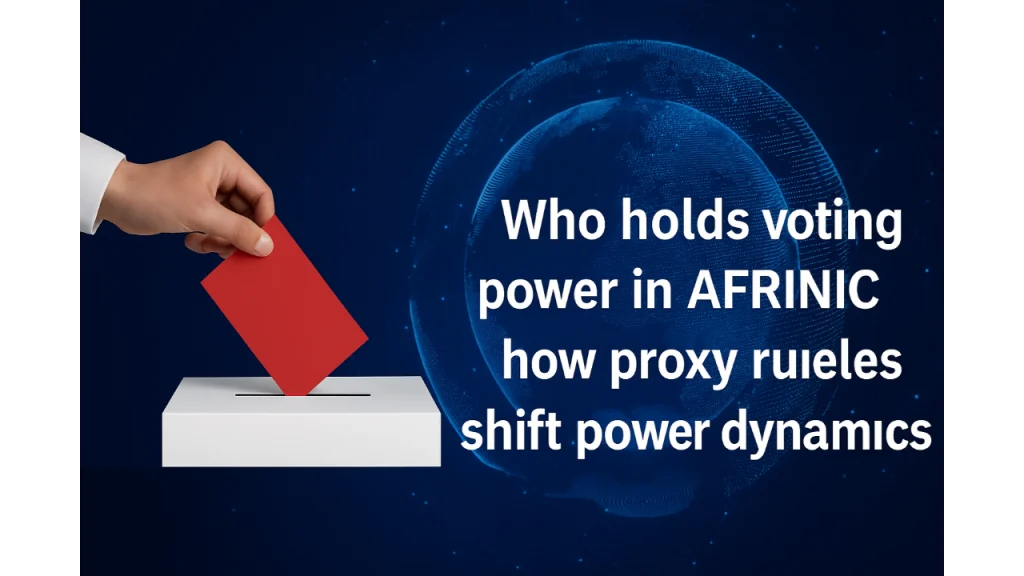- AFRINIC’s proxy structure gives excessive control to a few intermediaries.
- Experts say current rules weaken fair representation and democratic oversight.
Proxy voting controversy shakes AFRINIC
AFRINIC’s internal election crisis has exposed a deeper flaw — its proxy voting system. Under the registry’s bylaws, members unable to attend meetings can assign voting power to another. On paper, this ensures participation. In practice, it has created a hierarchy in which a few well-connected agents control large blocs of votes.
During the annulled June 2025 board election, a single disputed proxy submission triggered a complete suspension of voting. Hundreds of legitimate votes were left uncounted, and no new board was installed.
Also read: AFRINIC’s hidden scandal: How legal fees exposed a culture of corruption
Also read: Proxy voting reforms for AFRINIC: What a fair model should look like
How proxy rules shift power dynamics
The proxy mechanism was originally designed to help members scattered across Africa participate despite travel barriers. Yet the absence of strict oversight has allowed power consolidation. Some individuals and companies collect multiple proxies, voting on behalf of dozens of absent members.
This concentration gives a few actors the ability to swing elections, control nominations, and even influence policy debates. When AFRINIC annulled its June election because of one contested proxy, it demonstrated not a commitment to fairness but a governance system paralysed by over-centralisation. The registry’s reliance on manual verification, without independent auditing, makes it prone to manipulation and procedural deadlock.
Also read: AFRINIC’s September elections were a flagrant violation of its own bylaws
Toward fairer representation
Unlike APNIC or RIPE NCC, AFRINIC lacks transparent voting disclosure. Members cannot verify how proxies were authorised or whether they were cast as instructed. To restore credibility, experts suggest AFRINIC must adopt reforms consistent with international governance norms:
- Enforce proxy limits. Cap proxy holdings at a verifiable number and require transparent registration of every proxy holder.
- Public audit of votes. Independent auditors should verify proxy authorisations and publish anonymised tallies to ensure integrity.
- Digital remote voting. Secure online systems could replace paper proxies, reducing opportunities for concentration or tampering.
- Transparent member registry. Make voting records and quorum data available to all members, not just insiders.
- Legal clarity. Amend the bylaws to prevent entire elections from being voided over procedural technicalities.
Without reform, AFRINIC risks becoming an institution where governance is decided not by its members but by whoever controls the proxies. That outcome would further isolate Africa’s regional internet registry from the cooperative, transparent standards upheld by its global peers.

